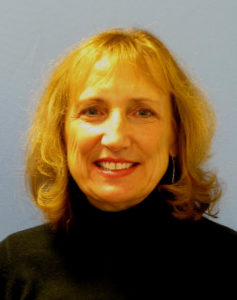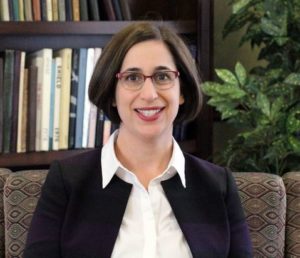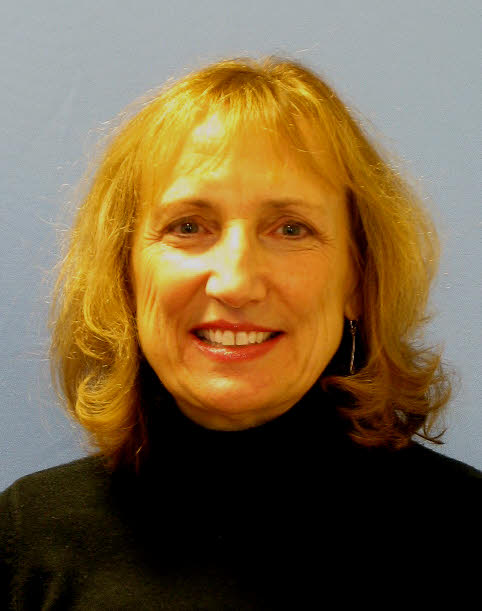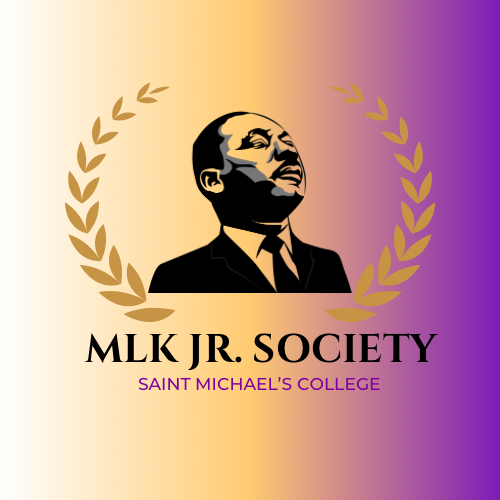
Diane Corbett
In a college financial-aid world complicated by the recent pandemic and government policy changes affecting key perennial issues such as affordability, student debt and reducing barriers for low-income families, the timing was ideal for Saint Michael’s to hire a top national veteran leader in the field, as the College did this summer.
Diane Corbett started work as the College’s new director of student financial services in July, moving to Vermont to be closer to family after leading the financial aid team most recently at Ivy League Cornell University in Ithaca, NY, and before that, at one of the nation’s largest universities, The Ohio State University.
Corbett heard of the opening through professional channels after already deciding to move nearer her son and grandchildren in Williston, and family and friends in her native region of New York’s Adirondacks, she said.
“As a first-generation college student, I well remember being interested in some schools after high school, but I self-selected out because I believed it was going to be a financial stretch for my family,” said Corbett, who as an undergraduate found a good fit at SUNY Oswego, where she majored in communications studies and Spanish and grew to appreciate the value of her liberal arts education as her career moved forward.
“I saw first-hand — in my own case, and then for students at SUNY, Ohio State and Cornell — how transformative a college education can be. I have seen countless success stories from students who had enormous promise but feared they didn’t have the financial means to attend — so those were great experiences,” she said.
“I had colleagues who worked at smaller schools who encouraged me to apply at St. Mike’s based on good things they knew about the College, so I did,” she said, explaining that she particularly was drawn to the spirit of social justice that is evident in the College’s culture given her own family’s long commitment, both professionally and as volunteers, to supporting initiatives that serve others.
Another big factor in her decision to take the job, she said, was the instant rapport she felt with Kristin McAndrew, Saint Michael’s vice president for enrollment and marketing, to whom she will directly report. Corbett said that in their extensive talks during interviews, she appreciated McAndrew’s “strategic vision for enrollment and emphasis on cross-functional collaboration” – that is, “admission and financial aid working together to assure we’re providing students with the best possible student service while working in tandem to achieve the goals of the institution.”

Kristin McAndrew
McAndrew said she, too, is enthusiastic to collaborate with so experienced a colleague after making a warm initial connection. “I am so excited to welcome Diane to St. Mike’s,” McAndrew said. “She brings extensive experience to the role, and she shares the student-centered approach and commitment to access that guides our work in the enrollment division.”
Corbett entered her professional field as a financial aid adviser at the University at Albany, SUNY in the early 1980s before moving on as financial aid coordinator at Ellis Hospital School of Nursing in the greater Albany Area. From there, she became financial aid adviser/federal work-study coordinator at the University at Albany, and steadily advanced through the ranks to become director of financial aid there from 2009 to 2015.
When she heard of an opportunity to apply at Ohio State, the timing felt right to her and her husband for making the leap since their sons were grown with the youngest in college. “We just decided, ‘why not?’” Corbett said. She went through the application process and was hired at that major high-profile university—and, at an exciting time, as it turned out.
“I had an absolutely wonderful experience at Ohio State,” she said. “Michael Drake was the president having started the summer before I arrived. During his investiture speech, he talked about access and affordability which became a strategic pillar for the university; from then we were working on a strategic vision for the university where financial aid was really front and center — the whole concept of affordability. I had the opportunity to be part of new initiatives to help low- and middle-income students and am grateful for my experience there.”
The opportunity to take the director job at Cornell in 2018 was for Corbett an attractive chance to move back to New York closer to family and home; but also, she said, “I had never worked at a private institution – and to work at a place like Cornell that meets the full financial need of students, and is so prestigious” presented for her “different opportunities and challenges” that she welcomed. The pandemic, of course, presented a whole raft of unexpected issues to manage while she was at Cornell.
One of several imminent or likely game-changers she mentioned for students and the “aid community,” as she refers to her colleagues in the field, is growing bipartisan support in Washington for doubling the Pell Grant for low- and middle-income families. If it comes to pass, she would see that as a big win for all involved.
She said that COVID brought an extended repayment pause for those paying back student loans, meaning it will be critical for the Department of Education and for financial aid offices to be clear and informative in guiding students and families through the often quite complex processes related to loan repayment. It is important to ensure that students do not end up in default or in arrears in their payments, or don’t “just give up because it is so complicated.”
Simplifying the financial aid process is another priority for Corbett, as for many leaders in her field, and she has supported the push for several years to make the Free Application for Financial Aid (FAFSA) easier for students to complete. For example, her efforts included a change in the institutional financial aid process for returning aid applicants at Cornell that made a practical difference in removing unnecessary barriers for students.
Such simplification is a good thing from her perspective, but will mean a lot of change. “That will be in the forefront for all of us this coming year — to project the impact on students and institutions,” she said, adding that she and other leaders will be working alongside the Department of Education to facilitate that simplification. “We walk a fine line since we are stewards of the taxpayer dollars and take that very seriously,” she said, “but we also have to make sure we are not, inadvertently, setting up barriers for our most vulnerable students that make it so difficult that they can’t navigate the process.”
Rather than just accepting everything in the financial aid realm uncritically, she said, “I think it’s good to ask ‘why?’ and sometimes the answer is because we have to do it, but other times, it’s only because we didn’t think about it differently. I’m hoping I can run my office at Saint Michael’s as efficiently as possible, in a way that is student-centric and supports the mission and goals of the College.”
Corbett said she would urge families of college applicants to “really look at the value of an education, since it can be so transformational.”
“Sometimes families look at sticker price and don’t drill down deeper to see which college is best for them holistically, meaning academically, financially, and socially,” she said. “I would say to them, look at what the college or university offers for financial aid, and also at the full experience that comes with your investment. At St. Mike’s, we’re funding students to make this valuable education affordable. Ask what it’s actually going to cost your family with all the financial support you are offered, and consider all the things you will gain from this investment in your future.”

For all press inquiries contact Elizabeth Murray, Associate Director of Communications at Saint Michael's College.






